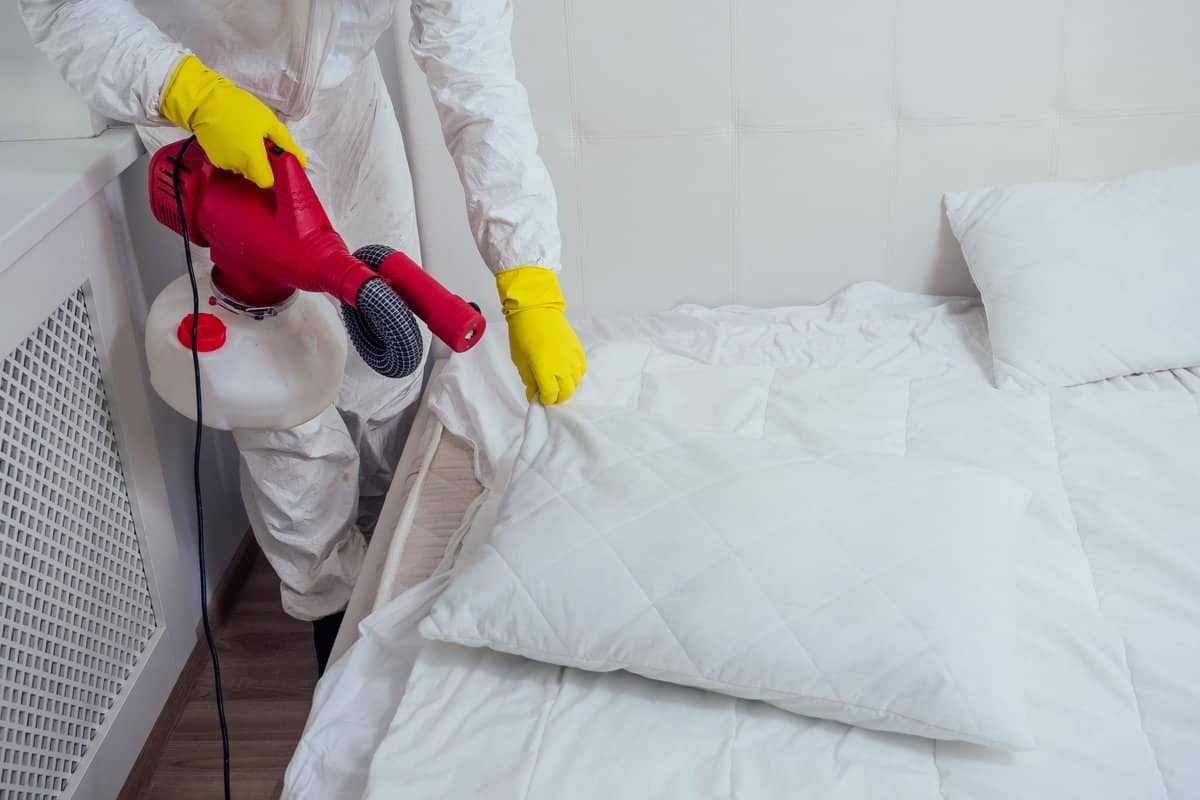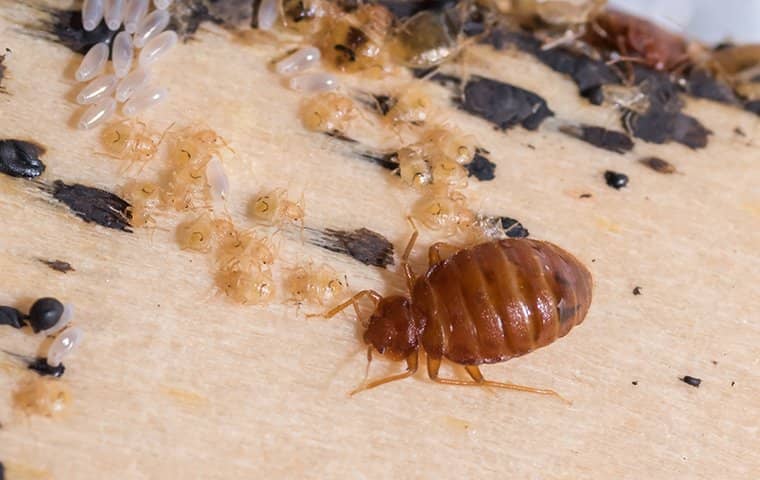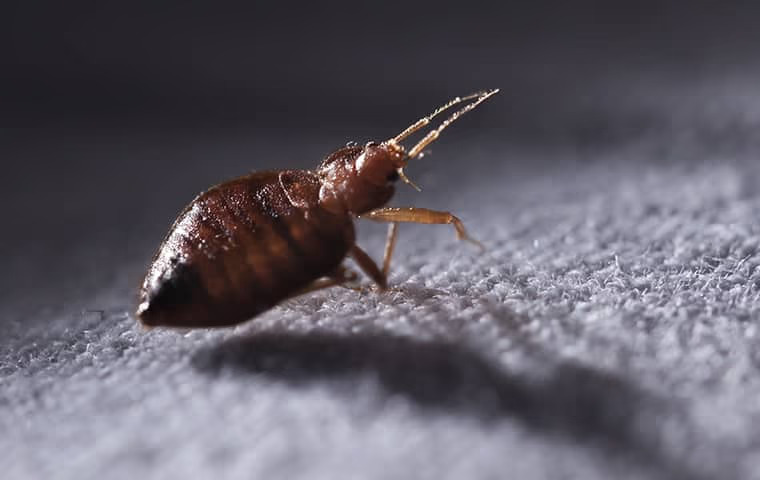Kinds of Insect Control: Which Technique Is Right for Your Infestation?
When encountered with a parasite invasion, the choice of an appropriate technique for pest control is crucial in effectively taking care of the circumstance. From chemical treatments to organic services, there exists a range of strategies that can be employed to address various sorts of bugs. Each approach comes with its own collection of factors to consider and advantages, making the decision-making procedure a nuanced one. Recognizing the nuances of each method and evaluating their compatibility with the specific bug problem available is important for accomplishing long-term success in bug management. By discovering the different types of bug control methods offered, individuals can make informed choices tailored to their special situations, making certain an extra lasting and reliable result in pest removal.
Chemical Bug Control
Chemical pest control includes making use of synthetic or normally derived chemicals to take care of and eliminate pest populations effectively. This approach is commonly used in farming, forestry, and property settings to battle a wide variety of pests, consisting of insects, rodents, and weeds. Making use of chemical pesticides can supply quick and targeted remedies to pest problems, making it a preferred choice for many individuals and organizations.
Among the vital advantages of chemical insect control is its capacity to swiftly get rid of bugs, reducing the threat of damages to crops, residential property, and human health. By making use of certain chemicals that target particular parasites, this technique can successfully control problems while lessening damage to valuable organisms and the atmosphere when used correctly.
However, the use of chemical insect control also elevates worries regarding potential damaging impacts on non-target types, water resources, and human wellness. It is vital to follow safety and security standards, use chemicals properly, and consider alternative parasite control approaches to lessen these dangers and make sure lasting pest monitoring methods.
Biological Bug Control
Biological parasite control, additionally recognized as biocontrol, makes use of living organisms to minimize and handle insect populations normally. By using the insect's natural killers or microorganisms, organic pest control offers a environmentally pleasant and sustainable solution to pest monitoring.

Mechanical Insect Control
Making use of manual and physical techniques to take care of pest populaces, mechanical pest control supplies an alternative technique that does not depend on the use of living microorganisms or artificial chemicals. This approach includes making use of obstacles, catches, or various other tools to physically discourage or eliminate bugs. By blocking parasite entrance points or setting up traps to capture them, mechanical bug control can efficiently lower invasions without presenting chemicals right into the atmosphere.
One usual instance of mechanical parasite control is making use of mesh screens on doors and windows to stop pests from entering structures. This easy yet efficient method functions as a physical obstacle, maintaining bugs out while permitting correct ventilation. Furthermore, tools like mousetraps, fly swatters, and ultrasonic repellents fall under the mechanical pest control group.
While mechanical pest control methods can be labor-intensive and call for routine tracking and upkeep, they provide a environmentally friendly and lasting remedy for managing parasite problems. By combining various mechanical techniques, property proprietors can develop an extensive parasite control method that decreases reliance on chemical pesticides.
Physical Pest Control

Some typical physical parasite control approaches include the usage of obstacles such as webs or displays to protect against bug entrance, catches to catch and get rid of insects, and hand-picking to physically remove bugs from plants or structures. In addition, techniques like warm treatments can be used to manage parasites like bed pests by elevating the temperature to degrees that are lethal to the bugs.
Physical parasite control is particularly valuable in incorporated bug monitoring (IPM) approaches, where numerous pest control methods are combined for reliable pest management while lessening the use of chemicals. By using physical parasite control methods, people can effectively address pest infestations with marginal environmental influence.
Integrated Bug Monitoring
When carrying out physical insect control techniques as component of parasite administration methods, Integrated Bug Monitoring (IPM) emerges as a thorough approach that leverages various methods to properly control pest populaces. IPM focuses on lasting avoidance of bugs with a mix of organic, social, physical, and chemical tools tailored to certain insect problems. By integrating numerous control techniques, IPM aims to minimize the risks related to insects while also reducing dependence on chemical solutions.
One key facet of IPM is the focus on surveillance and examining pest populations to determine one of the most proper control techniques. This aggressive technique permits early treatment and targeted techniques, leading to a lot more effective pest administration. In addition, IPM advertises eco-friendly techniques by prioritizing non-chemical control techniques and only making use of pesticides as a last hotel.
Conclusion

By utilizing the insect's all-natural predators or pathogens, biological insect control uses a sustainable and environmentally pleasant remedy to pest monitoring. - Kings pest control services Cincinnati oh
Making use of hands-on and physical techniques to handle bug populaces, mechanical insect control supplies click this site a different strategy that does not depend on the usage of living microorganisms or synthetic chemicals.An effective technique to taking care of pest populaces without counting on chemical or organic techniques involves the usage of physical insect control strategies.When applying physical bug control techniques as part of pest administration techniques, Integrated Pest Administration (IPM) emerges as a comprehensive approach that leverages numerous methods to efficiently regulate pest populations. Chemical pest control includes the use of chemicals, biological pest control uses all-natural predators, mechanical pest control includes physical barriers, physical insect control includes capturing or getting rid of bugs, and incorporated pest monitoring combines several approaches for a holistic technique to pest control.
Comments on “Top Kings Cincinnati Pest Control Services: Pest Control Expert Knowledge”